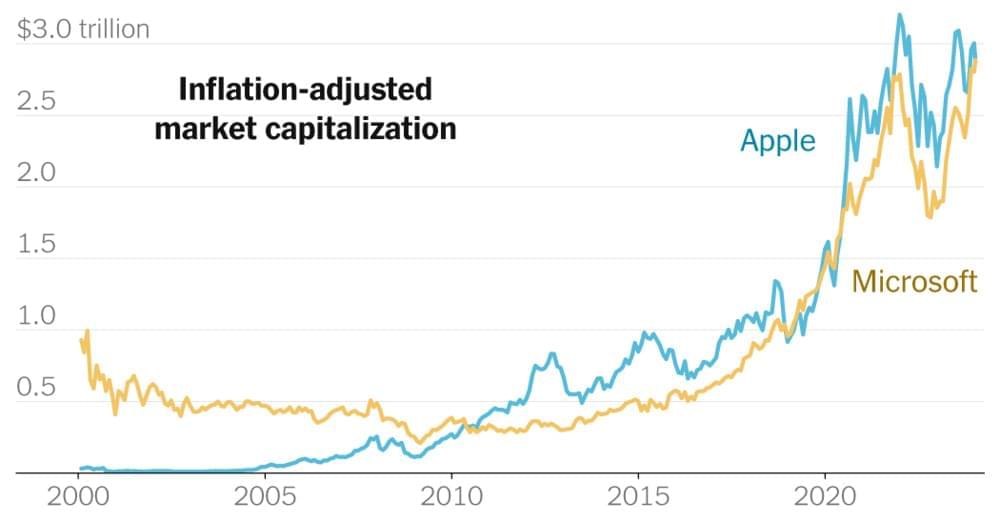The shift is indicative of the importance of new artificial intelligence technology to Silicon Valley and Wall Street investors.
OpenAI CEO Sam Altman sat down with Bill Gates to explore the positive potential and threats of artificial intelligence.
Forward-thinking designers are willing to embrace the technology — without relinquishing human creativity’s central role.
One of the most curious objects in last year’s Venice Glass Week was a milky white blown-glass vase.
An artificial intelligence model can discern whether fingerprints from different fingers come from the same person, which could make forensic investigations more efficient.
By Grace Wade
The language-learning app downplayed automation’s role in a recent offboarding of contractors, but translators worry it’s a harbinger of things to come.
Lost in translation?
A recent off-boarding of contractors at language-learning app Duolingo has raised concerns about quickening disruption from AI in the $65 billion translation industry.
How Google perfected the web
Posted in internet
As the 14th season of Bravo’s Real Housewives of New York City came to a close this fall, I found myself on Reddit, reading rumors about the marriage and divorce timeline of one of the show’s stars.
The web is filled with content designed for Google, not humans.
Holograms have long been a staple of science fiction, but they are now becoming a reality thanks to Holoconnects, a leading technology provider of AI-powered holographic solutions. This company is dazzling the attendees of CES 2024 with its lifelike, highly advanced hologram technology, which can create 3D holographic visualizations of people, products, or logos.
The company’s products are Holobox, the Modular Holobox, and the Holobox Mini, which can project holograms of anything you want, such as yourself, your favorite celebrity, or your brand logo. The devices are very easy to use; you need electricity and the internet to bring holograms to any location. They also have a touch system, so you can interact with and control the holograms.
Learn about the Kapolei Energy Storage plant, the world’s most advanced battery energy storage system.
The KES batteries play a crucial role in reducing the curtailment of renewable energy by 69%, allowing Hawaiian Electric to integrate 10% more new utility-scale renewables than previously projected. Additionally, the project is estimated to save customers money, reducing electric bills by an average of $0.28 per month over a 20-year contract life.
The specifications of the KES plant include 135 MW / 540 MWH of capacity and energy, 50 MW / 25 MWH of additional ‘fast frequency response’ for grid stability, ‘virtual inertia’ to mimic the power-smoothing function of a spinning turbine, and ‘black start’ capabilities for grid recovery during blackouts.
This innovative battery energy storage system replaces the grid capacity of a nearby AES coal power plant, contributing to the state’s clean energy transition. Plus Power, a leader in developing, owning, and operating standalone energy storage, has a growing portfolio of large-scale battery systems across the United States and Canada.
The colossal rocket from Elon Musk’s space company which aims to take humans to Mars and beyond, soared to the edge of space in its second integrated test flight in mid-November.
However, the historic flight had its challenges. The Starship and the Super Heavy booster exploded in mid-air shortly after the stage separation, creating spectacular fireballs that lit up the sky. The cause of the mishaps was unclear, and many speculated that the flight termination system, a safety mechanism that destroys the rocket if it deviates from the planned trajectory, was triggered.
Two months later, SpaceX founder and CEO Elon Musk finally shed some light on what happened during a company update presentation at Starbase, the launch site and production facility for Starship. He revealed that the world’s heaviest rocket was too light to reach orbit.
German high-end car modification company Mansory has just released some concept images for a luxurious flying car called “Concept.” But why?
German luxury car modification company Mansory has surprised everyone with its ‘Empower’ concept ‘pimped up’ flying car concept.









